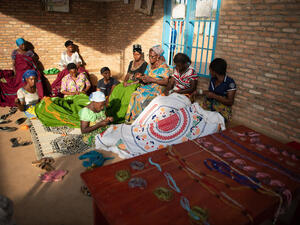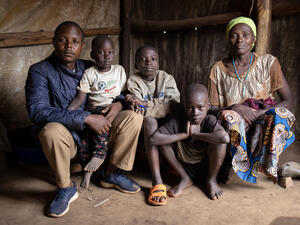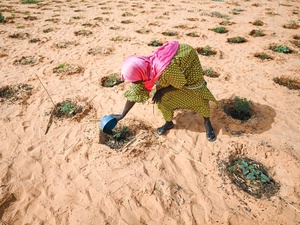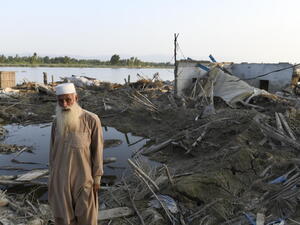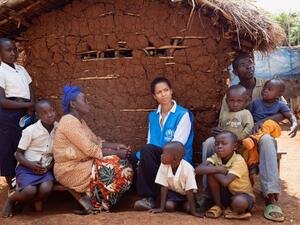Mozambican midwife offers a lifeline for displaced mothers to deliver safely
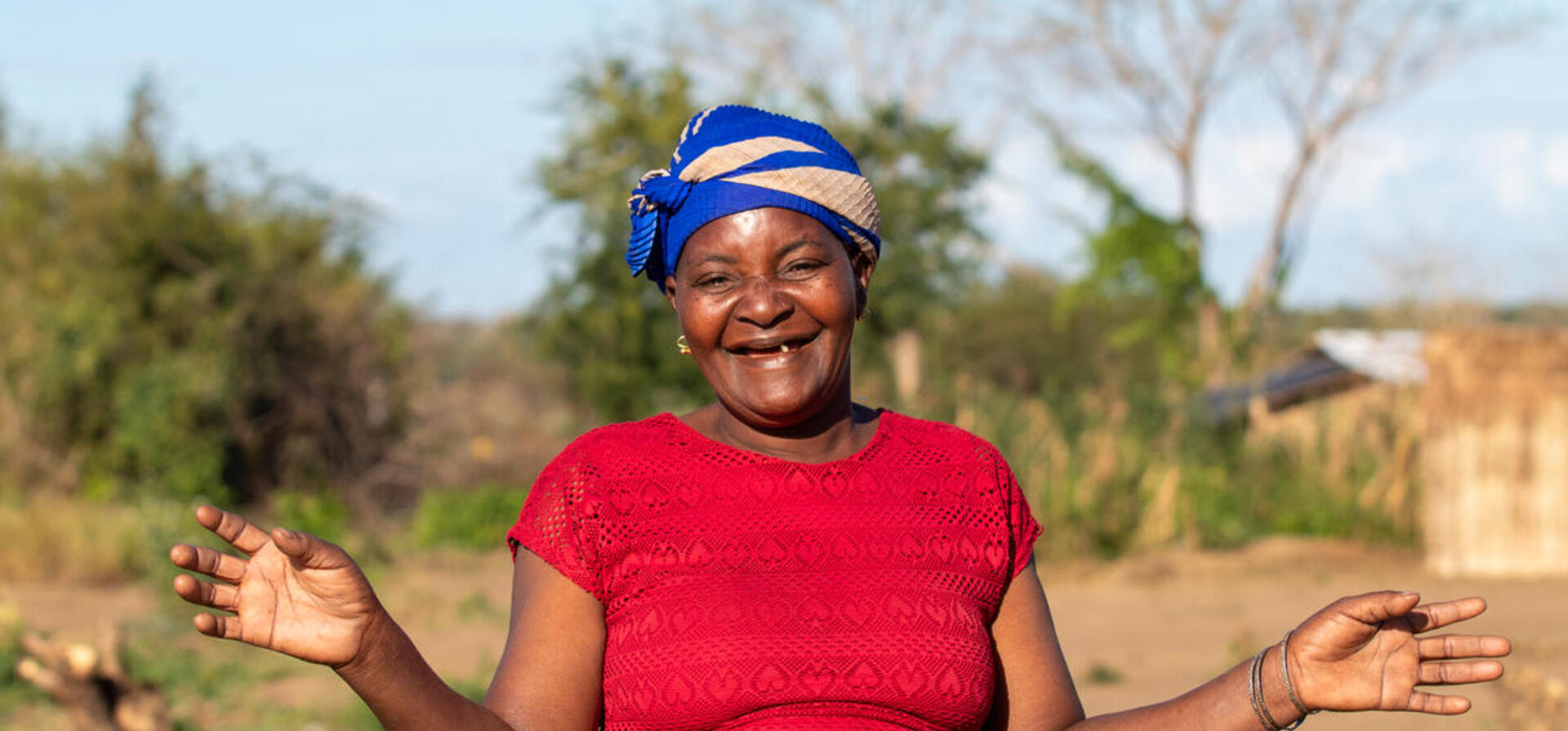
Mozambican midwife offers a lifeline for displaced mothers to deliver safely
When Rosa Saide, 45, fled home last November with her husband, five children and pregnant sister, many thoughts haunted her mind, but she was adamant to escape danger and more importantly, deliver her baby niece safely.
A trained midwife, Rosa was ready for the inevitable – her sister Maria’s delivery in the bush, where they hid for days to escape attacks by non-state armed groups in Quissanga, in Mozambique’s Cabo Delgado province. The conflict which started in October 2017 has so far displaced some 732,000 people, mostly women and children.
“The birth was a real challenge. Conditions were poor and we lacked clothes for the baby,” she recalls.
Regardless, Rosa’s midwifery skills came in handy – she used some traditional techniques like plant-based medicine for the pain, and the baby was born safely. Once the family arrived in Ngalane site for displaced people (IDPs) in Metuge, some 68 kilometres from their hometown, mother and child received basic medical assistance from humanitarian agencies on the ground.
“Conditions were poor and we lacked clothes for the baby.”
The urgency and worry that came with this experience is hardly new territory for Rosa, who has helped hundreds of pregnant women from her village, especially those who couldn’t afford transport to reach the nearest hospital, some 30 kilometers away.
“When I noticed how many pregnant women needed proper guidance and care during delivery, I knew I had to learn traditional birthing methods for safe delivery,” she explains.
She adds that her community trusted her with guiding women and girls on making wise decisions for a better future.
“I would see so many adolescent girls drop out of school after getting pregnant and I realized the dangers of lack of information,” she adds.
She took it upon herself to raise awareness on the importance of adolescent girls’ education, the dangers of early marriage and early pregnancy, women’s health and safe labour. Soon, she became a strong advocate for women’s empowerment in her community.
“When a group of girls learn, they can teach other girls. It is like a cascade effect – once you change one piece, you inevitably change the rest,” she explains.
Rosa’s arrival in Ngalane last November meant her skills would soon be key among this new community. Through UNHCR, the UN Refugee Agency and its Protection Focal Points (PFPs), she started assisting pregnant displaced women during labour. Amina, an IDP from Quissanga and now a PFP in Ngalane, is one of the women Rosa has assisted.
“When I fled, I was seven months pregnant. I was scared. I didn’t know where to find safety for me and my unborn baby. I was so lucky to find Rosa, who not only helped me to deliver my baby, but to also feel confident as a woman so I could eventually become a PFP.”
“When I fled, I was seven months pregnant. I was scared.”
As of May 2021, Rosa had already delivered 20 babies. But even as she helps women deliver safely at home, she advises them to save money so they can go to the hospital to deliver. The nearest hospital is about a half hour away by car and transport is expensive. During the rainy season which starts from April to November, it's usually rendered unreachable.
“It's a big challenge for the whole community as it results in more home deliveries than desired,” explains Rosa.
While UNHCR and partners develop activities on a regular basis focusing on women and girls, Rosa encourages girls to invest in their education so they can have a better future – the same desire she has for her five children who are all in school.
She leads awareness sessions on how women can take care of their health before, during and after having a baby, on avoiding early pregnancy and on studying, to have better opportunities in life.
“When girls stay at school, they can develop important skills and find good jobs anywhere. A woman should only get pregnant after completing her studies,” she adds convincingly.
Rosa recently started attending awareness sessions conducted by UNHCR and partners in Metuge on the Prevention of Sexual Exploitation and Abuse (PSEA) and gender-based violence (GBV). During those sessions, UNHCR leads discussions on how to communicate safety concerns with parents and caregivers, the different types of GBV and how adolescent girls can seek support.
UNHCR has been training PFPs on how to engage the community on prevention and how to include strategies to support girls in upcoming GBV case management so that GBV responders are fully able to support girls at risk. Rosa has been learning new key messages during those sessions and has already included them in her training sessions.
“When girls stay at school, they can develop important skills.”
While she is unsure what the future holds for her, she knows that she would love to return to Quissanga when the conflict ends and continue with her midwifery. Despite all the difficulties she experienced before and the daily struggles to adapt to her new life in the Ngalane, Rosa continues to find strength to practice as a midwife. Through her work, she connects with women and their children at many different levels, from guaranteeing their safety to encouraging them to find better opportunities for their lives.
“I hope that my children and all the children in this community don’t give up on their dreams, so they can be great professionals, like teachers, lawyers and doctors,” she smiles.



